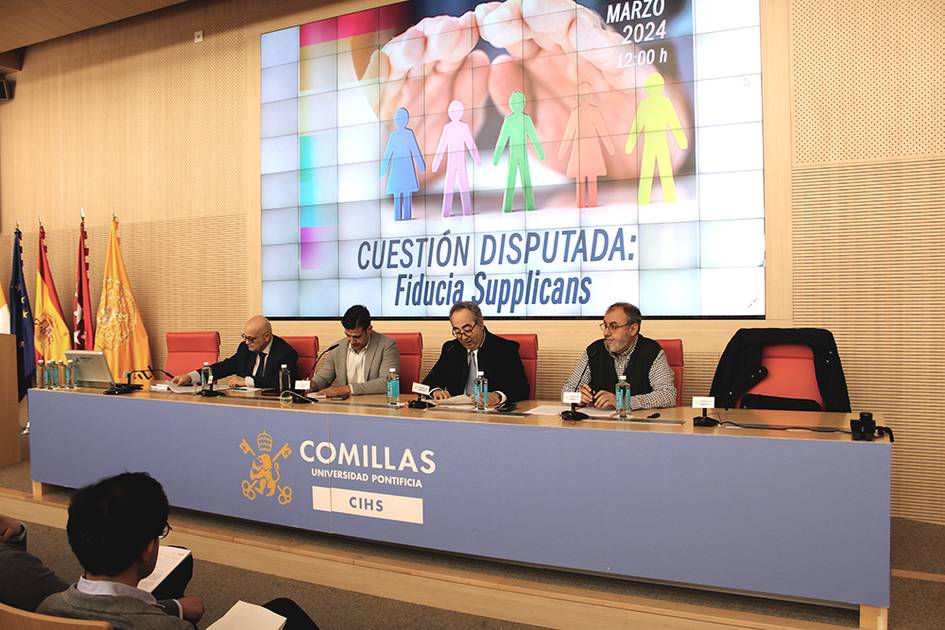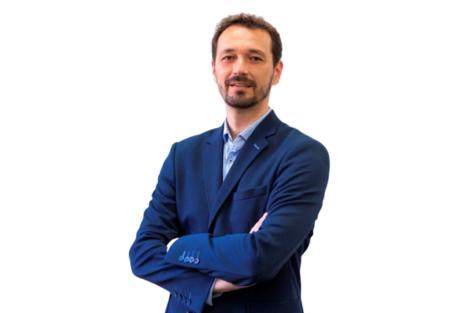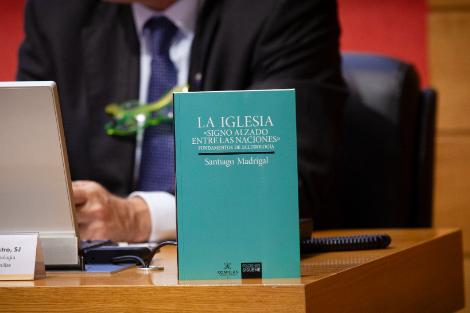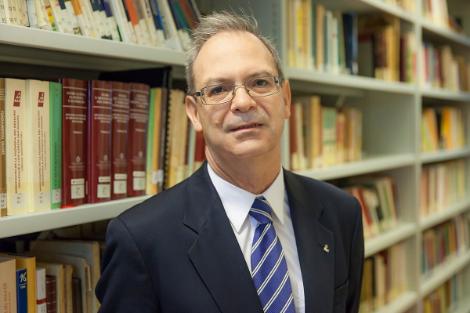Where there is love, there is God
Students and lecturers from the Faculty of Theology discuss Fiducia Supplicans

11 March 2024
The auditorium of the Cantoblanco campus was the setting for a scholastic exercise for students and lecturers in Theology on a highly topical subject, the declaration Fiducia Supplicans on the pastoral meaning of blessings, published a few weeks ago by the Dicastery for the Doctrine of the Faith.
José Beltrán, director of the magazine Vida Nueva, was in charge of moderating the session in which the students Francesco Di Lorenzo, Alessandro Cocozza, Ana Filipa Ferreira Milheiro Lima, Alejandro Escoda Coll, José Daniel Torrubia Sánchez and Mafalda Carneiro Leão Gonçalves de Figueiredo participated with their questions. They were answered by Lecturers Javier de la Torre Díaz and Pablo Guerrero Rodríguez, SJ.
De la Torre began by saying that dichotomy and classifications do not help on this issue and urged caution when making value judgements about adulthood. Instead, he invited the attendees to take another perspective, that of the humility of the Church. "It seems to me that the Church does not fully understand marriage and the family, and must come closer to reality. 'The Church does not have the truth' (Dei Verbum, 8), but walks towards the truth."
"In the Church we need to do a theology of failure, which does not exist. We have a fictional theory of perfection," Guerrero added. "We must be very clear that abstract categories have to be applied to concrete people, and if there is one thing this pontificate, and Fiducia, has, it is that we have to apply categories to reality, which has failure. We take a pastoral approach to people thinking that the progress of human life goes from success to success and perfection to perfection, and it is not like that".
Both scholars made it clear that the statement is not only the fruit of the evolution of Francis' doctrine "of a Church on the way out", but of the entire post-conciliar magisterium. "To understand Fiducia Supplicans you have to read it with Evangelii Gaudium, it is an application of this, and an organic development of Amoris Laetitia," said De la Torre.
"I see clear continuity and a dialogical process. The church does not function on the basis of revolutions but on the basis of reforms. It is a natural evolution and coherent with what there has been done," Guerrero confirmed.
"Where there is love, there is God. And I have the impression that Pope Francis is following this line," Guerrero said. "Human maturity has to do not with great concepts but with the capacity for closeness, affection, sensitivity and care. The model of the fullness of a couple cannot be confined to one person," said de la Torre.
Of course there is still a long way to go, both acknowledged, but the will is needed to make it happen. For Guerrero, "the speed of the church should not be set by the slowest or the fastest, and the path set by the Pope is perfectly human".
According to De la Torre, this is a gesture of the mother Church, which wants to say to people, 'I love you, I understand you'. "We cannot standardise the church, the church in these matters must not look inward, it must get out of its ecclesial introversion and look outwards".
For nearly an hour and a half, questions were answered, with the aim of analysing the declaration and providing keys for its reading and pastoral application.
As the dean, Francisco Ramírez, SJ, explained, the instrument of the disputed question, used for the analysis of the document, "serves believers who want to make the question of God intelligible and relevant, and we are always students, because we want to maintain the question and the concern for truth".
You may also be interested in

Professor Santiago G. Mourelo publishes this article on the itineraries of education in faith in the magazine Misión Joven, of Salesians

The posthumous work of the Professor, published by Publishing House Sígueme , was presented with a heartfelt tribute by professors and friends

Professor Gabino Uríbarri, SJ participated in the presentation of this book by Carlos María Galli
